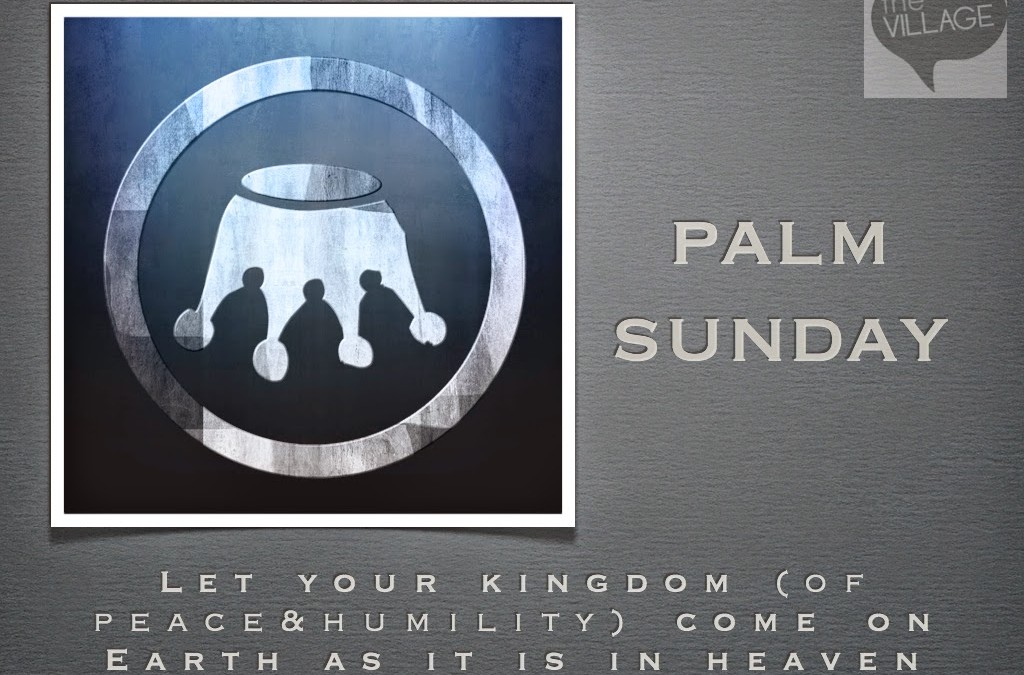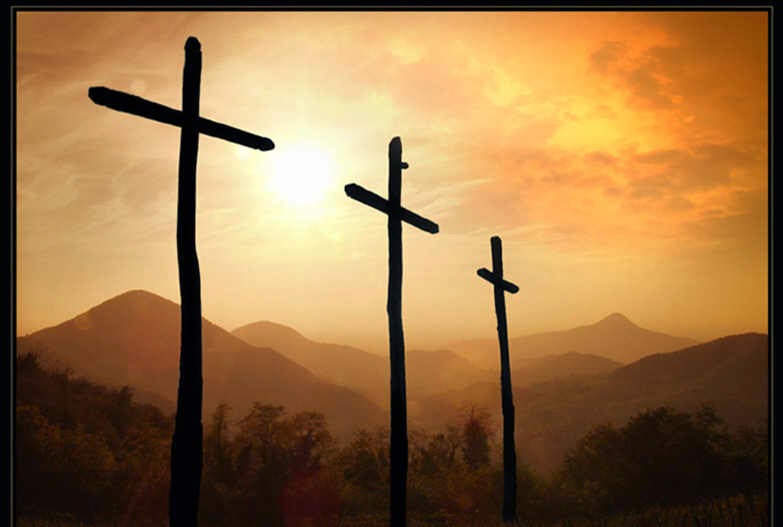
by Jonathan Manafo | Apr 28, 2014 | Sunday Conversations
If I were to ask you what makes you happy, you may give two kinds of responses, ones that are profound and meaningful, and others that are a little more on the silly and temporal side. Meaningful would be things like: my spouse, my kids, because I’m so fulfilled with my work and calling, making people smile. Other simple responses may include: winning the lottery, your favourite team winning the stanley cup, your least favourite team losing the stanley cup, chocolate, etc.
Our quick responses are normally things that fall into our lap, not things we work hard for. A surprise cheque in the mail or winning the lottery are things we may not work for, but would definitely make us happy. But what if (true) Happiness cost you something? What if for you to be happy, you had to give or work or invest in…let’s say others?
Over the next few weeks at The Village we’re answering this question, ‘So you wanna be Happy?’ (add an ‘eh’ for us canadians) by looking at things like forgiveness, generosity, being present, etc.
Forgiveness isn’t simply something we receive, it is also something we offer. As we’ve been offered forgiveness in and through Jesus, he in turn invites us to pay it forward if you will. Forgiveness is such a wonderful gift that wouldn’t want to keep it to yourself.
How does forgiveness make us happy? We are all in desperate need of it, and God graciously offers it, so when our need matches God’s gift, we are…happy! You can use the word joy, or fulfilled, but no matter how you look at it, a forgiven person is a happier person. E hubbard says, “The ineffable joy of forgiving and being forgiven forms an ecstasy that might well arouse the envy of the gods.” If you don’t believe me, check out this short video.
Even though science may prove it, Jesus actually shows it (gives it away).
In Matthew 26:28, Jesus says, ‘This is my blood of the covenant, which is poured out for many for the forgiveness of sins.’ Paul continues this theme in Colossians 1:13-14, “For he has rescued us from the dominion of darkness and brought us into the kingdom of the Son he loves, in whom we have redemption, the forgiveness of sins.” And again in Ephesians 1:7, “In him we have redemption…the forgiveness of sins…with the riches of God’s grace…”
But we can’t ‘just’ be recipients – we are invited to be collaborators, contributors, conduits of this forgiveness. Jean Paul says, “Humanity is never so beautiful as when praying for forgiveness, or else forgiving others.”
One of the most beautiful stories of forgiveness is found early in the Old Testament. You can read it in Genesis 50:15-21. Jesus, when teaching us how to pray, tells us that forgiveness is both something we ask for, and something we offer. In Matthew 6 we read, “forgive us our depts, as we also forgive forgive our debtors…for if you forgive other people when the sin against you, your heavenly Father will also forgive you.” Lots to think about there. Our prayer should always go both ways – God forgive me…and help me to forgive others.
How many times should we forgive others? Jesus responds to Peter in Matthew 18 by saying, ’70×7′. Basically he says, if you’re counting, you’re not forgiving. Counting is only prolonging your judgement and/or revenge.
Hey, I’m with you, forgiveness is hard. It costs us something. It’s an investment. However, the returns are so much greater than the initial investment. True happiness is always going to cost us something. Forgiveness is one of the essential costs, of being happy, yes, but it’s also a characteristic of one who is following Jesus!
When we accuse others, we in turn are accused. Why? Because we are all in fault of something. NT Wright says, ‘Every time you forgive someone, you pass on a drop of water of the bucketful that God has already given you.’ As you inhale God’s forgiveness, make sure to exhale it to those who need to experience it from you.
(CNN story on forgiveness)
– – – – – – – – – – – – – – – – – – – – – – – – – – – – – – – – – – – – – – – – – – – – – – – – – – – – – – – – – – – – –
Small Group Questions:
Why do some people find it difficult to forgive themselves?
If you were to describe Jesus’ forgiveness for the world and for you personally, how would you communicate it?
How about forgiving others? Tough? Depends what they did? Any stories you’d like to share?
(Matthew 18:19)
Jesus ties our forgiveness to how we can forgive others. Almost like a boomerang. One writer defined it as breathing in and breathing out. What do you think about this? Especially what Jesus says in Matthew 6:14-15 and then again in Matthew 18.
When it comes to being happy or fulfilled or ‘joy’filled, how is forgiving others connected?

by Jonathan Manafo | Apr 15, 2014 | Sunday Conversations
Before we get to Sunday…which by the way is the best and most important reason to be happy…lets take this (holy) week in. Moving from Palm Sunday to Good Friday is a reflective journey that helps us appreciate who Jesus is, what Jesus did, and how the world is ‘saved’ ‘rescued’ and ‘delivered’ in and through him. Palm Sunday starts us off. We begin the journey as Jesus did. Just like we could interpret the joy of the crowd as affirmative, so to we can rush to the conclusion that all was well and the party had already begun.
The resurrection is the party of parties. The reason we celebrate is because of how dark Friday was. The light of Sunday is bright because of the shadow cast by Friday. Take it in, let it affect you, let it hit you deep. It will allow us to appreciate Sunday all the more.
What will you do, how will you pray, what more will you sacrifice, to identify with the suffering of Jesus? This week, this Friday, think about the darkness, the shadows, the grief, and the pain, all for the sake of the world. Sunday will be here before you know it, but in order to appreciate the party of (his) resurrection, stop to appreciate the reality of (his) death.

by Jonathan Manafo | Apr 8, 2014 | Sunday Conversations
 Too many people in our culture have the misconception that encountering Jesus is like going to a job interview – impress the boss to get the nod. Some how you feel you have to impress God enough for him to invite into his house for the big party on Friday night. We wouldn’t all admit it, but perhaps if we realized the walls between humanity and God have already come down, then we’d attempt to discover who he is and what he offers in and through Jesus.
Too many people in our culture have the misconception that encountering Jesus is like going to a job interview – impress the boss to get the nod. Some how you feel you have to impress God enough for him to invite into his house for the big party on Friday night. We wouldn’t all admit it, but perhaps if we realized the walls between humanity and God have already come down, then we’d attempt to discover who he is and what he offers in and through Jesus.
Acts 16 lets us in on 3 characters who encounter Jesus. They all come to God’s story from different angles, non of them perfect, all of them in need.
Lydia’s a business woman who has been gathering with other God-fearers (people attracted to God’s story, but don’t feel any need to become Jewish). Paul finds her, not at a synagogue, where we’ve seen him and Silas go to when they arrive in various towns, but by a river where people (women) meet to pray. Philippi is a (very) Roman city (a leading city they say). It would be hard pressed to find 10 Jewish men to make quorum in order to officially have synagogue. So people intrigued with God’s story becoming their story gather outside the city to pray. It’s here that Lydia hears Paul’s explanation of Jesus and when ‘God opens her heart’ she jumps in – fully committed. Lydia becomes an influential person in the New Testament – it’s her home that hosts the first church in Philippi.
Paul & Silas then meet a slave girl who is demon possessed. She follows them around telling everyone what Paul & Silas are up to. Paul gets so frustrated (annoyed) that he calls the demon out of her. Instantly she is freed from her prison. This leads to some serious trouble for Paul & Silas. The slave girl’s owners are ticked that they’ve lost profit on the slave girls gift (which she had via the demon) of predicting the future, so they see to it that Paul & Silas are flogged, Stripped, Beat up, and put in Prison. Don’t forget that in this part of the story a girl who is troubled by evil is set free by the power of Jesus, through Paul.
In comes character number three. While Paul & Silas are in jail (singing hymns I might add), an earthquake occurs and releases them from their chains. The prison warden is scared of the trouble he will get into and thinks that taking his life is the best option. Paul & Silas surprise him by revealing that they haven’t gone anywhere. This (along with open mic songs on night one in prison) must impress and inspire the warden, and leads him to ask the question: ‘What must I do to be saved?’ It’s worth noting that salvation for the warden wasn’t what we think it to be. At that moment, in his present darkness, salvation meant ‘help me right now’. We know salvation to be about eternity with God. This is true, but salvation for that warden meant something very practical, ‘what must I do to get out of this mess?’. The gospel answers those questions too. The Warden (and his family) are baptized. His life takes a new direction, as did Lydia’s, as did the slave girl.
God’s story is the same, but how we encounter it is different. Our way to God is the same – Jesus, but our way to Jesus is often very different. God opened Lydia’s heart; He ripped out a demon out of the slave girl’s heart; And in the case of the warden, he inspires a question, because of the actions of Paul & Silas, that leads to salvation through Jesus.
No matter where we find ourselves, where we come from, what our bank account says, what our report cards said – no matter where we’re from or what we’ve done – God can open our heart and lead us to ask the question of all questions, ‘what must I do to be saved?’ To that question, it’s not simplistic or unintelligent or even foolish to say, Jesus is the Answer. I’ve always thought that there are more questions than answers, and I’m comfortable with that. However, I do believe that Jesus is the answer, to Lydia’s searching, the slave girl’s troubles, the Wardens fear, and more importantly to your (and my) question about faith and life and God.
As complicated and imperfect as my life gets, I believe that where ever I am, Jesus meets me there. He fixes my brokenness. He is my answer.
A business woman, a slave girl and a prison warden walk into a bar. The bartender says, what do you want to drink? They each go into long stories about why they are thirsty. The bartender says, I have the perfect drink for you…

by Jonathan Manafo | Apr 1, 2014 | Sunday Conversations
“Why do you have to make things so complicated…?” Avril Lavigne screams these words out in the rock anthem that made her so popular a few years ago. The song is about a relationship…a complicated one at that? Not sure if it led to a break up or not, but the frustration was definitely mounting. Break ups aren’t fun. They are difficult, sad, hard, and of course, complicated. You’re either the one dropping the news, or the one receiving the news. We all know what side we’d rather be on? Well, neither really. Mutual breakups are best, because at least they make more sense. I’d refer to a hollywood flick for this, but the movie Break Up ends with Vince Vaughn & Jennifer Aniston getting back together, so I’m not sure it’s worth the mention (too late).
The tale end of Acts 15 invites us into another conflict in Acts. This one isn’t a community conflict, but a personal one. Things between Paul & Barnabas get complicated. They are serving the church together – sharing the gospel together – on mission together. But something comes in the way. It’s a former character from Acts 13. John Mark seems to be back on the scene, only because he’s invited by Barnabas. Paul, however, wants nothing to do with him. Paul is still upset about John Mark ditching him and Barnabas on their first mission (13:13). Barnabas is one of those guys who sees the best in others and wants to give John Mark another chance. Luke, the writer, describes this as a nasty disagreement. 15:39 says, “They had such a sharp disagreement, that they parted company”(NIV) “Tempers flared and they ended up going their separate ways”(MSG) “Their difference of opinion was so heated…”(VOICE).

How can we do anything but appreciate Luke’s transparency in this narrative? Writers of history always have a choice, they can say it how it ‘was’ or direct us to their desired end. When thinking critically about the Bible, we have to ask questions like, ‘did they leave anything out of this?’ or ‘why was this mentioned and not this?’. Luke, with integrity to the story and to the gospel, leaves this in the story. Two apostles disagree, get into a heated debate (the original language suggests this) and part ways. How is that consistent with the gospel message of peace? It’s not, but it happens. The next question is this, did God allow it to happen, or did he gracefully provide another way to continue the forward motion of the gospel?
I don’t think God plans disputes (most of the time). But what God does do well is turn complicated messes into things of beauty. God takes my complicated ‘present’ and turns it into a hopeful ‘future’. Do I deserve it? No? But that is what grace is all about. We don’t know what is around the corner, but God does. Even if I only see the mess, it doesn’t mean that around the corner something beautiful is not brewing.
How do we know this to be true from this story. A few things…
– Paul finds a new partner and sees success immediately (churches strengthened and encouraged)
– One group of two became two groups of two. Divide and conquer rang true here. (even after a messy breakup)
– Timothy is there as Paul arrives to his next destination (Lystra). Timothy needs Paul and Paul needs Timothy. Paul calls him his son in 1 Cor 4:17 and says there’s no one like him in Phil 2:20. Timothy’s father (a Greek) is thought to be dead so Paul takes him under his wing…as a son and ministry partner.
– Side note: we often think that the Bible teaches us what to do, this is true, but in this case we learn what not to do by observing a heated debate between two friends. We also see that God’s grace is bigger than our mess-ups.
What do we take home? God takes our complicated and turns it into hope; He turns our mess into something beautiful; he provides people along the way (like Timothy) who make you look back and say, ‘only God could’ve put this together’.
Next time you scream at the top of your lungs, “Why do you have to make things so complicated?”, know that God sees it, grieves it, and then (only the way that he can) offers an alternative ending to your breakup or your mess.
Three times in 11 verses we read something like this, “The churches were strengthened and encouraged and continued to grow”. How, in the middle of a complicated situation could this happen? Only God!
– – – – – – – – – – – – – – – – – – – – – – – – – – – – – – – – – – – – – – – – – – – – – – – – – – – – – – – – – – – – – – – – –
small(er) group questions:
Can you think of a complicated situation that potentially derailed some progress you may have been making at that time in your life? Something that made you question a few things?
What do you make of Paul & Barnabas’s dispute (Acts 15:39)? How does it make you feel when you reconcile that with a gospel of peace?
How does one explain honest parts of the biblical story? The ugly parts? The ones with breakups, deaths, uncertain conclusions? (Luke leaves this in on purpose)
The beginning of Acts 16 shows… as “Paul arrived…” “Timothy was there…”
– Can you relate to this? As you turn the corner, God has something/someone waiting for you?
Read Acts 16:1-5 (focusing on verse 3). In light of what we talked about last week, what is confusing about this text? How can we reconcile it?
(hint: look at 1 Corinthians 9:19-22)







